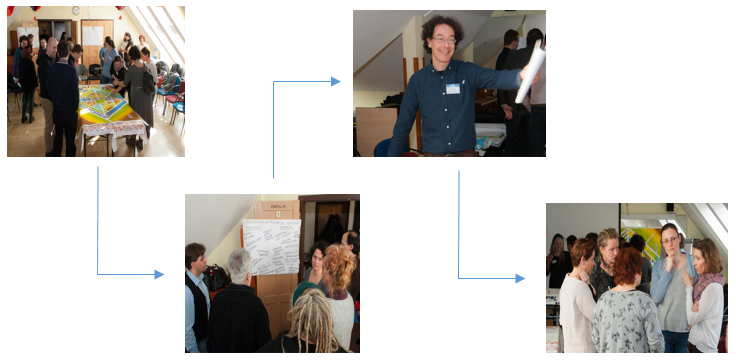ESSRG (Environmental Social Science Research Group) Ltd, the Hungarian partner of the FoTRRIS Horizon 2020 project, is organising a 3-month long exploration into the possibilities for local economy development in close cooperation with Transition Wekerle (TW), Budapest, Hungary.
“Wekerle Local Economic Development Strategy Workshop”
The aim is to create a common vision for a local economic development strategy by bringing together the civil, business and public sector; more specifically local economic agents, experts, NGOs, contractors, district leaders.
The program is based on a ‘multi-sectoral’, ‘multi-actor’ dialogue. Tracey Wheatley, the local contact for TW, and György Pataki (ESSRG) the main researcher, cooperated to bring in the best possible mix of local actors, thinking beyond the sectors themselves to make sure the widest possible number of social backgrounds was also represented. In addition to local expertise, 9 experts of diverse professional backgrounds (ranging from community development through social business to urban planning) were also invited as members of a so-called ‘competence cell’ to assist the participatory-deliberative process.
On January 14th the first workshop explored the current characteristics of local actors, economy and resources, the dynamic between the niche innovations and the dominant regime. Definition of local economic development was co-produced, barriers to and leverages for niche and regime actors were deliberated upon.
In the second workshop on February 18th, participants were encouraged to explore and share their visions of the future of Wekerle local economy. Key areas for further debate were identified by the participating experts, including community-based transport, community spaces, local services, stewardship for townscape, and many others.
The final workshop on March 18 started with a ‘fairy tale’ of Wekerle by a professional story-teller that aimed for emotional engagement. Then, space was provided for joint reflection on the process so far. Finally, action planning discussion took place in order to complete the project concept.
The workshop program was complemented by a series of extra programmes including a tour of unused local spaces, a mapping event with the help of a local graffiti artist, and two short courses in social business and crowdfunding.
The workshops were extensively reported by local media. Moreover, a short film is being made by professional journalists that will be broadcasted during an evaluation and outreach workshop this June.
Comments are closed.


